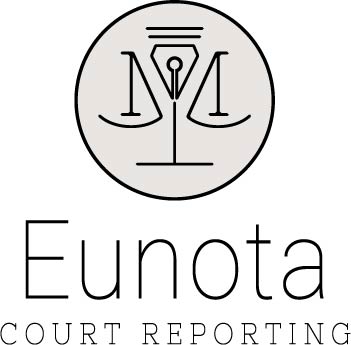How to Respond While Being Examined
How to Respond While Being Examined
If you have a legal meeting coming up, you might be feeling nervous about what is expected of your responses and Eunota Court Reporting is here to help you have a better idea of how to best express yourself. If you are new to the legal world, you likely have found that there are a lot of new terms to learn, forms to fill out, and hoops to jump through. This is just as true in Moncton as it is anywhere in Canada or internationally and we want to help you.
Yes and No
We cannot emphasize the importance of yes and no as answers enough! When you are communicating with lawyers, you have to be clear and concise. If a lawyer asks you a question that can be answered with a simple yes or no answer, please do that and avoid vague explanations as much as possible. In addition, things like nodding your head or mumbling, “mhm,” don’t count as answers and you will likely be asked to say yes or no. A trick is to always keep the transcript in mind – would you rather it clearly stated your answer or had nothing at all as your response?
Take Your Time
There is seriously no rush when you are in a legal meeting trying to communicate your case. If you need to take a moment to form your thoughts after a question has been asked, by all means – do that! Transcripts are used as evidence in court and is simply a written verbatim document of what was said while you were being examined. Because this is most commonly used instead of audio clips, there is no long lag between question and answer like there might be in real life – the text simply states the question and then the answer. This just goes to show that there really is no need to rush your answer. Your words, in writing (aka. the transcript), is important so make sure that you say what you mean.
Ask to Repeat
If you are asked a question and either didn’t fully hear it or don’t understand, you can ask to have it repeated. Like stated above, your answers are critical to your case so make sure you fully understand the question being posed so you can most effectively express your answer. The lawyer will be able to repeat or ask in a different way that makes sense to you. The whole point of these meetings is to increase communication so that both sides are better understood.
Be Educated and Confident
It is important to think about your case before you go to your examination and be confident in your stance. To be confident, you will need to spend time reviewing your documents, familiarizing yourself with the opposing side’s stance, and thinking about what you want to achieve from this whole process. All too many times we have met with parties who haven’t thought about what they actually want, so when it comes time to meet, not much gets accomplished and they are left with a long list of to-dos before their next meeting (making things more expensive!). You will need to come prepared with concrete examples, documentation, dates, times, places, etc. A good rule of thumb? Never say always and never say never. Here’s an example:
DON’T: My ex never responded when I tried to make plans with him
DO: On September 1, 2020 when I tried to make plans with him, he did not respond for two days and I have the text messages to prove it
Bring Documentation
And on that note, bring any documents with you that will help strengthen your case if they are not already included in your affidavit of documents. This could include agendas, journals, online calendars, emails, text messages, or photos. So in the example above, you would be smart to bring with you a screen shot of the text messages sent between you and your ex to show the other lawyer and have it be added as part of your case.
Bilingual Language Rights
If you live in New Brunswick, you have language rights if you are French or English. If the opposing side wishes to examine you in a language you are not comfortable in, it is your right to have a translator present (and they will have to pay for it). Again, this all comes down to ensuring high quality communication of all parties. Luckily, Eunota Court Reporting is able to work with translators and prepare transcripts in both official languages for your lawyer.

Book Eunota Court Reporting Today!
Eunota is an unbiased third-party court reporting service that is based in Moncton, New Brunswick and travels around the province providing excellent services to those in need of high quality recording and transcription. Please contact us to get a free estimate or to make a booking today!
